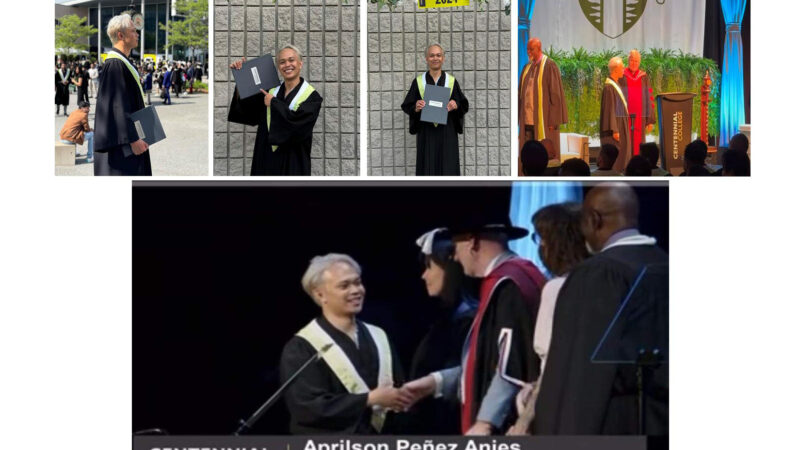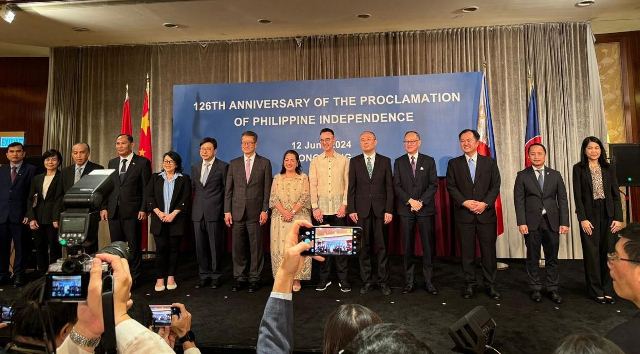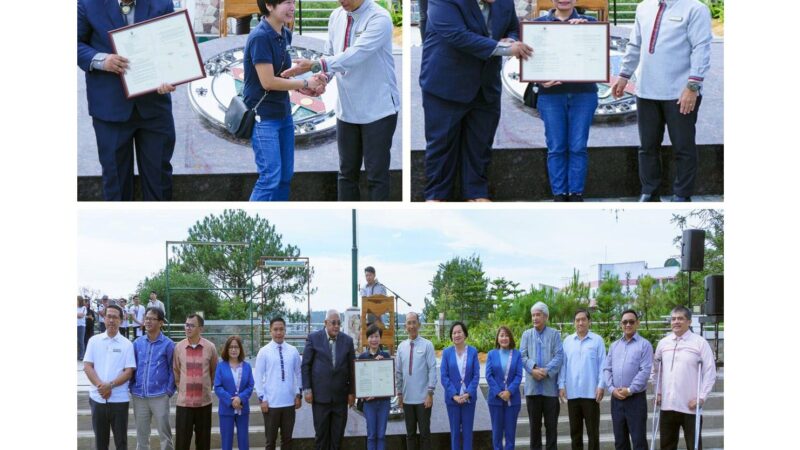TOURISM OFFICE APPEALS FOR UPGRADE TO INDEPENDENT DEPARTMENT

Faced with a myriad of responsibilities, the Tourism and Special Events Division has appealed to the Baguio City Council to pass the proposed ordinance upgrading their office into an independent department.
The ordinance, once approved, would separate the said division from the City Administrator’s Office and would provide an adequate staffing plan to fulfill all its duties and functions as an office.
During the city council’s regular session on May 20, 2024, Mayor Benjamin Magalong expressed his support for this initiative, describing the employees under the City Tourism Office as some of the “most exploited and abused” city government workers due to their commitment to going above and beyond their mandated duties without being financially compensated.
City Tourism Officer Aloysius Mapalo said their office had seen significant expansion in its functions since 2018. These include conducting seminars and training for tourism frontliners, data collection and analysis of tourism profiles and arrivals, supporting sister cities programs and benchmarking activities, and tourism promotion and education campaigns.
The office also manages the Baguio Convention and Cultural Center (BCCC) and provides round-the-clock tourist assistance services. Additionally, the office has taken on new roles such as coordinating cultural and arts programs, serving as secretariat for the Baguio Tourism Council and Baguio Creative City Council, and assisting with administrative functions beyond its original scope.
Not only that, various events throughout the year, such as the Ibag-iw Festival and Christmas Tree activity, demand considerable time and effort from the office. And just recently, national functions from the Department of Tourism (DOT) have been devolved to their office, prompting them to begin activities such as local tourism development planning and formulation, local tourism statistics and surveys, local tourism branding, marketing, and promotions, and media planning and content creation.
Mapalo said, that once the office is converted into a department, it will be called the City Tourism, Culture and Arts Office with four divisions to address the aforementioned tourism-related functions. He presented a proposed staffing plan and budget with gradual implementation.
Currently, there are 10 existing personnel in the office, and with the proposed addition of 29 more, there will be a total of 39 personnel for the department. The estimated total budget required for these personnel is P19.4 million. With the current annual budget of the office at around P7 million, they would only need an additional P12 million.
By staggering the staffing plan over four or five years, the department would need Php 3-4 million per year to start filling in key personnel positions.
But to realize the conversion of the office into a full-fledged department, The City Budget Office and the City Human Resource and Management Office said the proposal may go through prioritization through the ongoing Organizational Development (OD) being undertaken by the city government.
Currently, the proposal is subject to the 45% Personal Services (PS) limitation. This is pursuant to Section 325(a) of the Local Government Code of 1991 (RA No. 7160) which stipulates that first to third-class local government units, including Baguio City, cannot allocate more than 45% of their total annual income from regular sources of the previous year for personal services in the following year.
Meanwhile, Councilor Jose Molintas sought clarity on whether a feasibility study had been conducted to justify the approach towards tourism facilities such as the BCCC as “economic enterprises.” He said this feasibility study should serve as the basis for creating an ordinance to formally establish the BCCC as an economic enterprise.
Molintas pointed out that the BCCC, being an economic enterprise, should be self-sustaining, meaning its income should cover its operational costs, including salaries and maintenance. He said that income generated from the facility should cover its operational costs, including salaries and maintenance, thus exempting it from the 45% PS ceiling.
Mapalo reported that based on official data from the Department of Tourism, Baguio claimed the second position in the country’s tourism arrivals in 2022 when only considering domestic tourists, trailing behind Boracay.
Councilor Betty Lourdes Said the proposed upgrade of the City Tourism Office to a department should align with the existing Baguio City Tourism Code, suggesting that the outdated could which was last updated in 2009 should be revised and strictly enforced.
Tabanda further suggested considering the roles of the Baguio Tourism Council and other related councils in the proposed department’s framework.
She underscored the importance of developing a comprehensive ordinance that consolidates all relevant aspects of tourism and cultural management to avoid fragmentation and conflicts. She said this would ensure that the new department would operate cohesively within the city’s legislative and developmental plans.
Councilor Arthur Allad-iw pointed out that, since the proposed ordinance includes not only tourism but also culture, arts, and heritage preservation and promotion, it should involve coordination with national institutions such as the National Historical Commission of the Philippines (NHCP) and the National Commission for Culture and Arts (NCCA).
Stressing the need for cultural sensitivity, especially regarding the Indigenous Peoples (IPs) of Baguio, Allad-iw said the office should involve local perspectives and inputs to ensure cultural programs are appropriately sensitive and relevant.
Allad-iw also suggested collaboration with local artists and cultural practitioners to develop a more comprehensive and sensitive approach to cultural initiatives.
According to Mapalo’s report, tourism arrivals in the city peaked in 2018 at 1.7 million visitors but experienced a significant decline in 2020 and 2021 due to the COVID-19 pandemic. In 2023, the city recorded a total of 1.3 million tourists. Mapalo expressed optimism that the city will gradually return to its pre-pandemic tourist arrival records in the upcoming years. However, he stressed that the reported statistics, which were consolidated from accommodation establishments in the city, may not accurately reflect the true influx of visitors as approximately 70% of tourist arrivals remain unaccounted for.
Based on the official data from the Department of Tourism, in 2022, Baguio City held the second position among the destinations in the country with top domestic tourist arrivals, trailing behind Boracay. Mapalo pointed out that other leading tourist destinations have dedicated departments to manage their tourism efforts.
He explained that the city is also a popular destination for various events, including Meetings, Incentives, Conferences, and Exhibitions (MICE), with 3,700 such events and 330,929 attendees last year. During peak seasons, like the December holidays, vehicle counts indicate around 225,000 tourists in just five days. The city anticipates 50,000 to 100,000 tourists every weekend during the summer.
Likewise, Mapalo stressed that the city attracts educational tourists, with around 155,000 students visiting annually, contributing significantly to the economy. English as a Second Language (ESL) institutions also draw foreign visitors, with 62 institutions and an economic impact of 2.7 billion pesos.
According to Mapalo, Tourism contributes approximately 25% to Baguio City’s economy, with expenditures totaling around 44.33 billion pesos in 2019.
Councilor Vladimir Cayabas emphasized the role of the proposed department in regulating standards to address issues such as substandard accommodations and cybercrime related to scams. He said it is important to ensure that all accommodation establishments meet standards, particularly since many tourists pay for comfort and convenience as this reflects on the city’s reputation as a destination.
On the other hand, Councilor Peter Fianza stressed that there is a need for a “ballpark number” to help regulate tourism and prevent negative impacts on the city. -Jordan G. Habbiling







